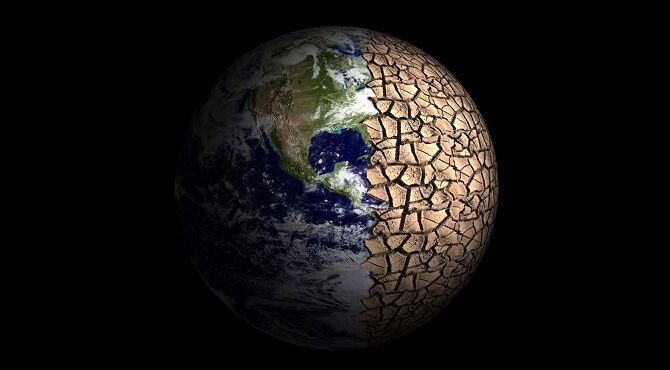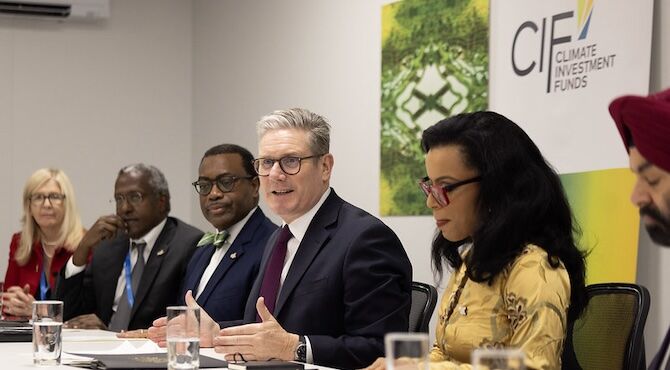COP29: investment required to tackle climate change leaps
It was intended to be the latest and largest opportunity for world leaders to meet in a bid to curb catastrophic global warming. But COP29 turned out to be missing just one thing – namely, an awful lot of those world leaders.

 13 November 2024
13 November 2024This article is taken from the Winter 2024/25 issue of
Relocate Think Global People magazine
Click on the cover to access the digital edition.As he addressed the COP29 the summit of 198 nations in Baku, Azerbaijan, Aleksandr Lukashenko, the president of Belarus, observed “the people who are responsible for this are absent”.
Related reading from Relocate Global
- How sustainable is your mobility programme?
- Cambridge calls for more global collaboration on climate education
- Future-Ready Forum reveals top skills students need to thrive in the future
- Donald Trump secures second presidency: what next for global trade?
Representatives of biggest polluters fail to attend
Mr Lukashenko had a point: the USA and China might be the globe’s worst polluters, but neither Joe Biden nor Xi Jinping were to be seen at the opening, two-day 'high-level segment' of the gathering. Many EU leaders were no-shows, too, along with heads of state of India, Indonesia and Brazil.In fact, leaders of the world’s 13 worst carbon-polluting nations, responsible for more than 70% of last year’s emission of heat-trapping gases, were not present and sent delegates instead.Yet, leaders from many of the world’s most climate-vulnerable countries did show up. And as he opened the summit, António Guterres, the secretary-general of the UN, made it plain that what these countries needed was more money from the polluters – an awful lot more money.‘Pay or pay the price’
The required amount was upped from the current aim of $100 billion to $1.3 trillion. That “is not charity, it’s an investment,” Mr Guterres said. “Developing countries must not leave Baku empty-handed. On climate finance, the world must pay up, or humanity will pay the price.”The main focus of the COP29 negotiations was to get rich nations to help finance developing nations’ efforts to transition their economies away from fossil fuels, to help them cope with the harm changing weather patterns and sea rises might do and to compensate them for damages already suffered.The UN warned earlier in November that 2024 was likely to be the hottest year on record, with global temperatures set to hit 1.5°C above pre-industrial levels – the level nations agreed to take action to avert under the 2015 Paris Agreement.“It’s not surprising that richer nations are trying to downplay the importance of this crucial finance COP,” said Rachel Cleetus from the Union of Concerned Scientists. “They’re trying to evade their responsibility to pay up.”
Political leadership changes impacting national policies
Of course, the elephant in the room was Donald Trump, who does not become top dog in the Oval Office until 20 January 2025. His credentials as a climate sceptic are almost unrivalled among global leaders and his appointment on the first day of COP29 of like-minded Lee Zeldin, a former New York congressman, to become head of the US Environmental Protection Agency did little to improve the mood music in Baku.Coinciding with this was an announcement by President Biden of steep fines to be imposed on mass producers of methane in the gas and oil sectors – a move that many observers felt would not last long after 20 January.But Mr Guterres, apparently in a veiled reference to Mr Trump, tried to reassure COP delegates, saying: “The clean energy revolution is here. No group, no business, no government can stop it.”At least UK Prime Minister Keir Starmer – one of the few G7 leaders to attend the conference – provided some positive news by pledging the nation would, by 2035, cut emissions by 81% compared to 1990 levels, a target in line with the recommendations of the Climate Change Committee.“Let me be clear,” he said. “There is no national security…no economic security…no global security, without climate security. So, at this COP, I am pleased to announce that we are building on our reputation as a climate leader.“But a global problem also requires global partnership, which is why we took the opportunity at this COP to again urge all parties to come forward with ambitious targets of their own, as we all agreed at the last COP.“And through the NDC [Nationally Determined Contributions are country-level commitments on measures to reduce greenhouse gas emissions] partnership we are supporting developing countries to develop their own commitments. “We will also soon be launching the Global Clean Power Alliance – a political alliance of countries committed to accelerating the clean energy transition.”UK sets high bar
Climate analysts welcomed the announcement. “It sets a strong bar for other countries,” said Debbie Hillier, the global climate policy lead of Mercy Corps. Nick Mabey, from the climate think-tank E3G, said, “other nations should follow suit with high-ambition targets”.And with the summit-level stage of COP29 over, those leaders who bothered to attend headed for home, leaving their subordinates to try and hammer out a climate change financing package for developing countries before Baku shuts its doors on the gathering for a final time on 22 November.
Find out more about the Think Global People and Think Women community and events.


Subscribe to Relocate Extra, our monthly newsletter, to get all the latest international assignments and global mobility news.Relocate’s new Global Mobility Toolkit provides free information, practical advice and support for HR, global mobility managers and global teams operating overseas.
©2025 Re:locate magazine, published by Profile Locations, Spray Hill, Hastings Road, Lamberhurst, Kent TN3 8JB. All rights reserved. This publication (or any part thereof) may not be reproduced in any form without the prior written permission of Profile Locations. Profile Locations accepts no liability for the accuracy of the contents or any opinions expressed herein.



































